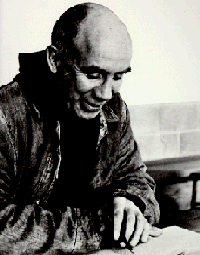The American holiday of "Thanksgiving," which traces it's roots back to the pilgrims that first landed in Massachusettes in the 1620's, really wasn't all that popular of a holiday for the first century of American history. It was widely celebrated in it's state of origin: Massachusettes, but only a few other states had a "Thanksgiving" celebration with turkey and all the trimmings.
The day started becoming a national day of celebration during the American Civil War. It was President Abraham Lincoln who was urged to issue a proclomation declaring the last Thursday of November as a national day of "Thanksgiving" in 1863, just a few months after the decisive Union victories at Gettysburg, PA and Vicksburg, MS.
In 1864, Lincoln again issued a proclomation calling for a national day of Thanksgiving on the last Thursday of November, but something extraordinary happened that turned it into a lasting national tradition.
A man in New York, first only known by the initials "GWB," decided that the troops serving on the front lines should be able to partake in a Thanksgiving feast like those celebrated in the northeast. So he and a group of others arranged for massive amounts of turkeys, chickens, apples, and other food be transported to the Union forces in Virginia. Talk about a moral booster! The food drive for the soldiers was a tremendous success, and served to unify the Union in a way that all other attempts failed to do. (Students of history understand that the "Union" was anything but during the first several years of the Civil War...)
For more about this interesting story, click here: James S. Robbins on Thanksgiving & War (National Review Online)
Saturday, November 27, 2004
Subscribe to:
Post Comments (Atom)


No comments:
Post a Comment